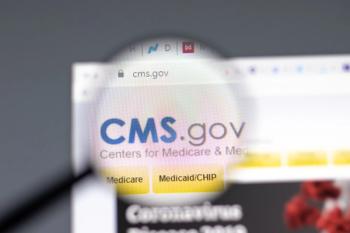
AJMC Studies: Barriers to Newer Antipsychotic Drugs Can Drive Up Other Medical Costs, Reduce Adherence
Two new studies in The American Journal of Managed Care find that state Medicaid restrictions on access to newer antipsychotic drugs save little in the short run, and may cost more later when patients fail to stay on their medication, end up in the hospital, or both.
FOR IMMEDIATE RELEASE APRIL 18, 2014
AJMC Studies: Barriers to Newer Antipsychotic Drugs Can Drive Up Other Medical Costs, Reduce Adherence
PLAINSBORO, N.J. — Two recent studies published in The American Journal of Managed Care have found that state Medicaid policies restricting access to newer antipsychotic medications can drive up healthcare costs down the line, in part because psychiatric patients are more likely to go off medication.
The issue of adherence, which describes how well a patient follows instructions for taking medication, is an important one when treating conditions such as bipolar disorder or schizophrenia. Studies published in the
The results come as Medicaid rolls are surging due to the Affordable Care Act. The Obama Administration reported earlier this month that
What are formulary restrictions, and why do they exist? Formulary restrictions are policies that many state Medicaid offices have put in place to encourage use of lower-cost drugs, such as requiring prior authorization or not covering certain drugs at all. The AJMC studies discuss how formulary restrictions have become more common in Medicaid, as second-generation antipsychotic medications have come on the market at higher prices than older drugs or generics. (The authors note that atypical antipsychotics account for 15 percent of Medicaid spending.)
However, even though two drugs may be indicated for the same condition, the two drugs may not be equally effective for an individual patient. Also, older drugs may produce unpleasant side effects that cause patients to stop taking them.
Authors of the March 2014 study, “Do Strict Formularies Replicate Failure for Patients With Schizophrenia?” led by Dana P. Goldman, PhD, said this: “Because a number of patients may respond to only one drug, formulary restrictions can place patients with idiosyncratic treatment responses at greater risk of uncontrolled symptoms. Uncontrolled schizophrenia has dramatic costs for patients (about 10 percent of whom commit suicide), and for society in terms of increased social service use and crime.”
The March study, funded by Janssen Scientific Affairs, focused on how formulary restrictions affect physicians’ prescribing patterns. It examined how barriers to newer drugs cause patients to end up on the same medication that failed them in the past, with “failure” being described as a hospital admission for their disease or a lapse of 30 days without taking the drug. Among the findings:
- No matter what restrictions were in place, patients tend to resume the same drug after an adverse medical event, such as a hospitalization. While failure rates are elevated nationwide (going off medication, inpatient admission), these rates are higher in states with formulary restrictions.
- In states that limit access to all atypical antipsychotics, the likelihood of a schizophrenia patient going back to the same drug after being off it for 30 days increased by 20.1 percent compared with states that did not have restrictions. The authors conclude that this is a sign that doctors in states with restrictions are more likely to put patients back on the same drug that failed in the past.
- Patients who live in states that impose restrictions on all atypical antipsychotics are 11.6 percent more likely to stop all treatment.
The February 2014 study, “Formulary Restrictions on Atypical Antipsychotics: Impact on Cost for Patients With Schizophrenia and Bipolar Disorder in Medicaid,” led by Seth A. Seabury, PhD, and funded by Bristol Myers-Squibb, focused more closely on rates of adherence.
Researchers found that cut costs on the formulary side of the equation may not yield overall savings: Applying formulary restrictions to atypical antipsychotics is associated with higher total medical expenditures for patients with schizophrenia and bipolar disorder in Medicaid. Other findings include:
- Schizophrenia patients in states with formulary restrictions were more likely to experience a hospitalization, had 23 percent higher inpatient costs and 16 percent higher total healthcare costs.
- Those with bipolar disorder subject to restrictions were also more likely to experience a hospitalization, with 20 percent higher inpatient costs and 10 percent higher total costs.
- Savings on drugs in both groups was not significantly lower.
- Patients subject to formulary restrictions had lower rates of adherence.
- Newer formulations of drugs are beneficial in part because they are long acting, meaning they stay in a patient’s system for a longer period after each dose. This may reduce the effect of an occasional missed dose.
Hospitalization costs were not the only fallout, authors reported. They wrote, “In the 24 states in our data, approximately 62 percent of prisoners were in states with restrictive formulary policies. Using data on state prison costs, combined with prior estimates that formulary policies increased the overall prison population by 2 percentage points due to more mentally ill patients being arrested, we estimate that restrictive formulary policies in Medicaid increased the number of prisoners by 9,920 and incarceration costs by $362 million nationwide in 2008.”
About the Journal
The American Journal of Managed Care, now in its 20th year of publication, is the leading peer-reviewed journal dedicated to issues in managed care. In December 2013, AJMC launched The American Journal of Accountable Care, which publishes research and commentary devoted to understanding changes to the healthcare system due to the 2010 Affordable Care Act. AJMC’s news publications, the Evidence-Based series, bring together stakeholder views from payers, providers, policymakers and pharmaceutical leaders in the areas of oncology, diabetes management, respiratory care, and immunology and infectious disease.
CONTACT: Mary Caffrey (609) 716-7777 x 144
Newsletter
Stay ahead of policy, cost, and value—subscribe to AJMC for expert insights at the intersection of clinical care and health economics.









